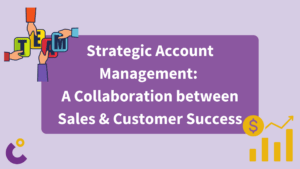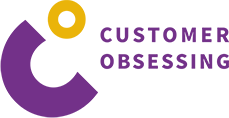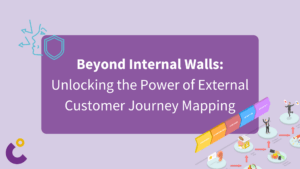
Customer Success: A Dash of Data and a Pinch of People
Amy Downs
First Published: March 21, 2017
Data has become the secret sauce for most companies. Businesses now recognize that data drives product development, marketing and sales decisions. Most companies, however, have yet to tap into a key way in which data can support their businesses long term by driving Customer Success.
In my previous article, I shared my experience from an executive boardroom meeting where I started my journey with the Lifesize Customer Success program. In the beginning, I asked my team a simple question, “Why do you think our customers leave us?” At that point, most of us had, at best, a vague understanding of what was pushing our customers to the door. But over the next few months, the reasons became clearer…with data.
Let’s explore where data plays the biggest role in Customer Success, and also where it will require a helping hand from your team.
Measuring the state of the relationship
Any good Customer Success software should allow you to aggregate a variety of data points on customers and your relationships with them. At Lifesize, for example, we use Customer Success software to measure our Customer Health Score – a metric that allows us to gauge the state of any given customer’s relationship with our company. This measurement may look at the following vectors:
- Net Promoter Score: Results from relationship or transactional surveys can help you quantify the health of the relationship with your customers or how you’re doing on specific interactions.
- Key loyalty drivers: Has the customer been through a key loyalty driver event, like a thorough and interactive onboarding process? If so, this can be counted a positive score.
- Product or service usage metrics: This metric gauges if the customer is using your product or service to its full potential. For example, at Lifesize, we look at key milestones in our customers’ journeys in addition to the number and types of calls made, frequency of Virtual Meeting Room usage, number of paired HD cameras and phone systems for meeting rooms or registered users. If they’re not using our solution’s key features, it may indicate that they are not gaining the full value of our solution.
- Comparative usage data: It’s helpful to set a baseline to help you understand how a specific customer engages with your product compared to similar customers. In our experience, we’ve had success setting baselines by customer segment and use cases, allowing us to understand if a specific customer is realizing value. Value means different things to different customers, and our customers continue to come up with new and creative ways to use our solution so we make sure to understand and measure what success looks like for each customer.
You can use these vectors and the related data to understand a holistic view of your true relationship with your customers. That said, keep in mind that data may not always give you an accurate or complete picture. Let’s look at an example:
Company ABC is a midsize manufacturing company. Twelve months ago, it purchased an HD camera and phone system for its conference room and a cloud-based video conferencing service. Since then, it’s only used the equipment and service three times. Your system shows that similar customers are using the solution daily, weekly or at least monthly. According to the data, something is amiss.
Jamie, your Customer Success Advocate (CSA), steps in. Jumping on the phone with the customer, Jamie encourages Company ABC to share its experience.
“We see your team is only using our product once every four months. Is everything okay?”
“Absolutely, Jamie! We have three executive board meetings per year, and we’ve used your solution for every one of the meetings in the last twelve months. It has worked absolutely flawlessly every time.”
The data was showing signs of a customer in trouble, yet Jamie’s conversation revealed that this customer was, in fact, very satisfied. In this case, the data from key loyalty drivers, product usage and Net Promoter Scores wasn’t enough for a clear picture of the relationship. Given this, a “subjective” score that allows CSAs to assign their own value to a relationship would be a good addition. It’s the combination of qualitative and quantitative that paints the entire picture.
I have the data, now what?
The Customer Health Score can be a core measurement that determines how your team engages with any given customer. For example, if your customer is in a “danger zone” with a very low Customer Health Score, this may trigger a specific action.
In our case, this data helps us know when to set a defined plan – or “playbook” – into motion. For example, if a customer relationship has regressed into an unhealthy score, we set a playbook into action to bring the relationship back to health.
Based on the Customer Health Score, a CSA identifies a customer as “escalated” and notifies the team leader. The resulting playbook may look like the following:
- Step 1: An executive calls the customer to ensure they know their issue is of the utmost importance and is being worked on.
- Step 2: The CEO is made aware of the escalated customer account for visibility on customer success priorities.
- Step 3: A tiger team assembles to identify pain points and corrective action.
- Step 4: Corrective action is taken while constantly in communication with the customer and executive team.
- Step 5: Once the customer relationship is de-escalated, a debriefing is conducted to understand patterns and evaluate best practices.
Playbooks might be set into action by various data-driven triggers. For example, a customer with a low Customer Health Score – but not quite “escalated” – may require a very different set of actions.
Regardless, the key to success in these circumstances is leveraging your data and your people the right way to provide the highest value impact to your customers. Data can help identify and initiate the escalation process and even inform the corrective action that needs to be taken. Ultimately, however, Customer Success requires a strategic mixture of data and a human ingredient. Armed with the right data, your CSAs can perform at the top of their game and deliver the most impactful experiences for your customers.
This might also interest you


Beyond Internal Walls: Unlocking the Power of External Customer Journey Mapping
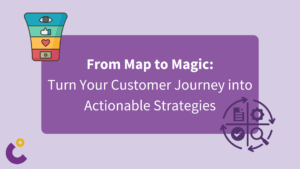
From Map to Magic: Turn Your Customer Journey into Actionable Strategies
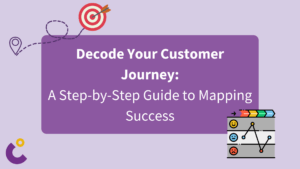
Decode Your Customer Journey: A Step-by-Step Guide to Mapping Success

Beyond the Score: Transforming Net Promoter into a Growth Engine – Net Promoter System
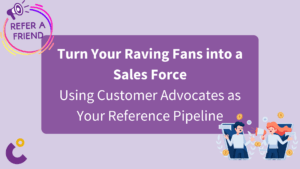
Turn Your Raving Fans into a Sales Force: Using Customer Advocates as Your Reference Pipeline
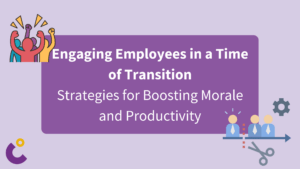
Engaging Employees in a Time of Transition: Strategies for Boosting Morale and Productivity
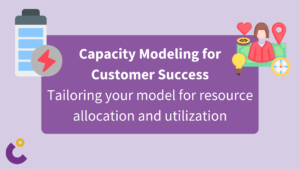
Capacity Modeling for Customer Success
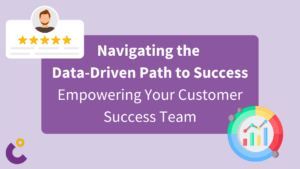
Data Driven Customer Success
